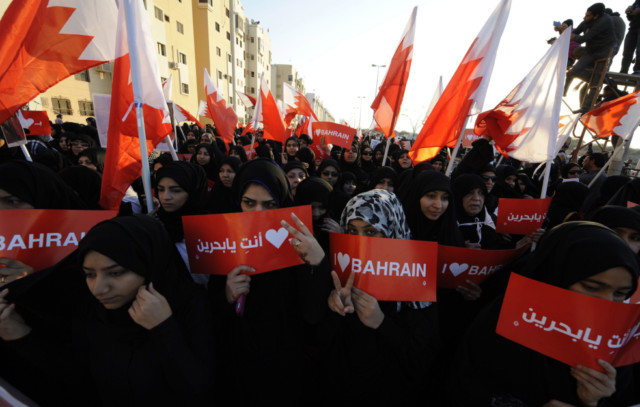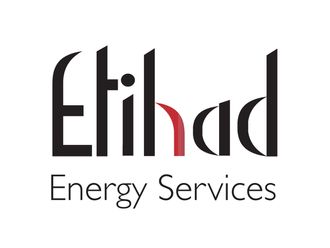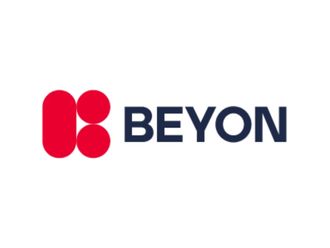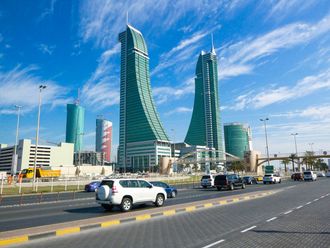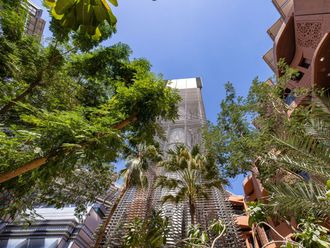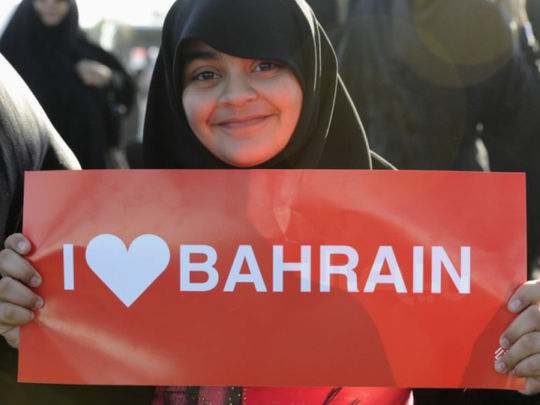
Manama: Representatives from the two chambers of the bicameral parliament, 15 societies across the political spectrum and the government are expected to hold on Sunday a national dialogue that will aim to take Bahrain out of a months-long political deadlock.
As the opulent setting of Al Areen Palace in the south of the country welcomes its guests, Bahrainis and the international community will be looking on with avid expectations, hoping that the outcome will help the nation move beyond the social and economic scars that have marked the Arabian Gulf country for almost two years.
Bahrain has been divided, often along sectarian faults, since the two major communities disagreed sharply over the merit of the movement launched in February 2011 to press for greater political, social and economic reforms.
Opposition societies supported the movement and said that demonstrators wanted more freedoms and equality, but other political formations insisted that the drive in fact sought to emulate the changes in Tunisia and Egypt and aimed to topple the regime to turn Bahrain into a republic modelled after Iran’s theocracy.
As mistrust grew and a bitter standoff cast a dark shadow over relations between the two sides and over the country, King Hamad Bin Eisa Al Khalifa called for a national dialogue in July 2011.
Around 300 people attended, but Al Wefaq, the largest opposition society, initially hesitated before it took part and eventually pulled out, complaining that it should have been allowed to have more representatives.
The dialogue agreed on a set of economic, human rights and social recommendations, but some political issues were left pending even though the agreements achieved resulted in far-reaching amendments to the constitution.
On January 21, King Hamad called for a new round of the dialogue and the justice ministry contacted the political societies and the parliament to nominate their representatives.
Eight independent parliamentarians, four women and four men, from the two chambers of the parliament said that they would be at the talks.
Six opposition societies welcomed the invitation and formed a coalition for the talks. “We look forward to negotiations and not a dialogue,” the coalition said. “We want however more details about them before committing ourselves, including information about the agenda and the timeline.”
The opposition said that the results should not be recommendations to be implemented, but constitutional formulations.
The justice minister responded that the agenda and time references would be decided by the participants when they meet at the launch of the dialogue while the state minister for information affairs said that the role of the parliament could not be dismissed.
The nine other political societies set to take part in the dialogue formed the National Coalition and said that they would not seek to impose their terms ahead of the talks.
However, they said that they insisted on an end to the street violence to create a setting that is more auspicious for the talks.
“All participants should oppose and condemn the acts of violence perpetrated in Bahrain and should refrain from giving it a political cover,” Abdul Lateef Al Mahmoud, the head of the Gathering of National Unity, the major society in the National Coalition, said. “We also stressed that we should all agree at the outset of the dialogue about the reference to whom the participants turn in case of a dispute. We strongly insist that we should all work towards reinforcing the concept of the democratic and civilian state and rejecting sectarian-based quotas,” he said.
Al Mahmoud added that his coalition refused “foreign interference in the dialogue or attempts to influence its modality or outcome”.
The two coalitions agreed in their statements that the government should not confine its role to being the moderator of the dialogue as initially announced and that it should have an active participation.
Shaikh Khalid Bin Ali Al Khalifa, Minister of Justice and Islamic Affairs and Endowment, later said that he and two or three other ministers whom he did not identify would be at the talks.
A proposal last week by the coalition of the opposition to meet ahead of the dialogue “to help Bahrain out of the political crisis sweeping across it” was turned down by the National Coalition in an indication of the challenges the talks will have to overcome.


